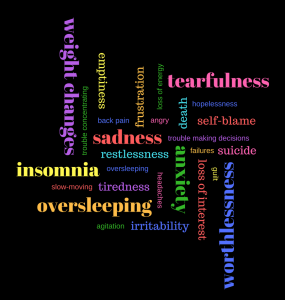Sometimes an injury at the workplace isn’t immediately visible. a broken bone, a traumatic injury, an exhausting sickness: each of these issues comes with a clear set of symptoms. If you’re feeling depressed after a work injury, you might not realize it until later. Read on to learn more from our Boston workplace injury lawyers.
Work Injury Damages Can Be Internal and External
Workers that find themselves suffering from a mental disorder after a specific set of circumstances at the workplace may be entitled to compensation.
The main stressors that the Massachusetts Workers’ Compensation Program covers include:
- a clear intention to inflict emotional damage,
- injuries at the worksite, or
- physical trauma that results in psychiatric harm.
For example, an abusive manager that bullies his subordinates would leave his Massachusetts company highly liable to a lawsuit.
According to the MassGov Workers’ Compensation Handbook, benefits for workers include the payment of medical bills for “depression and mental health problems, if you can prove they were caused by the job.”
Determining the Workplace Caused Trauma
A recent case in New York displayed the important distinction between psychiatric injuries sustained at the workplace versus those which an employee carries into the job.
In Rizzo v. Kean University, a senior collegiate administrator sued her university for inflicting emotional damage upon her. The judge in the case concluded that childhood abuse, rather than a specific triggering incident in the office, had led to the plaintiff’s emotionally disturbed state.
Additionally, the judge reaffirmed the previous case that the plaintiff needed to pass a series of objective tests before she could claim emotional damage from the workplace.
In short, there needs to be an objective stressor unique to the employee’s workplace which credibly induced stress in the employee.

When to See a Professional
If you notice a prolonged feeling of sadness, or otherwise sense something is off emotionally, immediately contact a medical professional. While the severity and frequency of symptoms differ on an individual basis, there are some common warning signs to watch out for:
- Sadness, tearfulness, emptiness or hopelessness
- Angry outbursts, irritability or frustration
- Insomnia or oversleeping
- Tiredness and lack of energy
- Reduced appetite & weight loss or increased food cravings & weight gain
- Anxiety or restlessness
- Slowed thinking, speaking or body movements
- Worthlessness or guilt
- Trouble thinking, concentrating, making decisions and remembering things
- Frequent thoughts of death, suicidal thoughts, suicide attempts or suicide
- Unexplained physical problems (back pain or headaches)
Depression in the workplace can negatively impact the quality of your work, as well as the feeling of self-worth that you carry each day.
A professional in the medical community will be able to diagnose your symptoms quickly and reliably. If it turns out that your symptoms do comprise a mental disorder resulting from an incident at the workplace, get in touch with a Boston personal injury lawyer that can guarantee the compensation you deserve.
Contact an Experienced Attorney
 Mental health treatment varies from state to state when concerning worker’s compensation law. In Massachusetts, you have the legal right to pursue this compensation. A Gloucester, MA construction accident and injury lawyer can help.
Mental health treatment varies from state to state when concerning worker’s compensation law. In Massachusetts, you have the legal right to pursue this compensation. A Gloucester, MA construction accident and injury lawyer can help.
While you are offered this guarantee under the law, it makes sense to hire a Massachusetts workplace injury lawyer and Wakefield crane accident lawyer that can guarantee that your bills are paid on time and adequately. Contact us today at 617-925-6407 for a free consultation if you or a loved one have been emotionally injured in the workplace.
